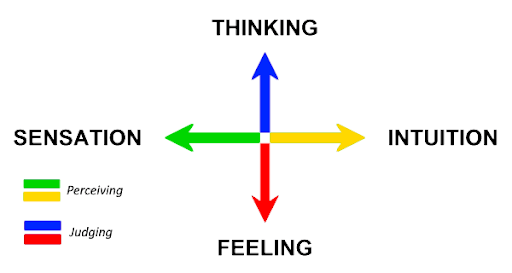What is individuation? Differentiation is when you are growing up. You are moving away from home. We all have to leave our families. Some people might not want to, but it is the only way they can grow up. You can’t stay with your parents forever or you will never be an adult. This article will take you through eight things every adult should know about individuation psychology!
Contents
- 1 What is Individuation Psychology?
- 1.1 Stages of Individuation
- 1.2 What is the Difference Between Individuation vs Differentiation?
- 1.3 The Eight Things Every Adult Should Know About Individuation Psychology
- 1.4 Individuation In Childhood and Adolescence
- 1.5 Individuation In Parenthood
- 1.6 Individuation In Old-Age
- 1.7 Motivation for Individuation
- 1.8 Individuation In Therapy
- 2 Conclusion
What is Individuation Psychology?
Individuation psychology means that when you are an adult, you are different from when you were a child. We will have to say goodbye to the people who helped us grow up. They will be sad, but we will also be sad. This process can be hard but is also important. It helps us to figure out who we are, what works for us and what doesn’t, and how we want our lives to be lived.
Stages of Individuation
Early Stages Of Individuation
The early stages of individuation usually begin during adolescence when we start to experiment with different aspects of our identity. We might try on new roles or identities, explore different interests and hobbies, and generally start to figure out what makes us unique. This is an important time in our lives because it allows us to find out who we are and what we want in life.
The Middle Stages Of Individuation
As we enter into adulthood, the middle stages of individuation take hold. This is a time when we may start to question many of the things we took for granted during our adolescent years. We may re-evaluate our relationships, careers, and other areas of our lives as we search for greater meaning and purpose.
The Later Stages Of Individuation
As we progress into our later years, the final stages of individuation take hold. This is a time when we may start to become more comfortable in our own skin and with who we are as people. We might look back on old relationships and experiences with fondness because they helped make us who we are today. Our ultimate goal at this point would be for us to come full circle by returning home after an extended period away from our family and loved ones.
What is the Difference Between Individuation vs Differentiation?
It’s helpful here to consider differentiation (the distinction between things) versus individuation (distinguishing oneself). Separation can sometimes cause anxiety in children and adults. But without separation, we would never learn or grow. As you may know from personal experience, this process of growing up isn’t easy! Moving away is hard. You might feel guilty about leaving your family and sad about losing touch with your friends. But this is an important part of growing up.
The Eight Things Every Adult Should Know About Individuation Psychology
All human beings go through a process called individuation. This means that they start to be different from their primary caregivers.
This process usually begins in the teenage years but it can start earlier or later depending on each person’s personality and situation.
The earliest roots of this development probably come from our relationships with siblings – we may compare ourselves to them or compete for parental attention. As we get older, other people who influence us like teachers and friends become increasingly important too!
There are eight things every adult should know about individuation psychology:
- Individuation involves separating yourself psychologically from others;
- However much you love your parents/family, you must find your path in life;
- Individuation is when you are different from other people, but also when you are the same.
- Individuation is not a one-time event but rather it’s something that’s constantly unfolding throughout our lives;
- As we individuate, we often go through several identity crises where we question who we are and what we want in life;
- Individuation usually involves a lot of pain and conflict as well as growth and change;
- It’s important to remember that there is no right or wrong way to individuate – everyone does it differently and there is no “right” way to grow up; and finally,
- Individuation is a process that leads to greater autonomy, self-awareness, and maturity.
Individuation In Childhood and Adolescence

It is the process of becoming an individual. It’s the time when a person becomes an adult and starts to think about what they want to do with their life. Usually, people begin the process of changing their gender by growing up. But it can happen at any time of your life if you are serious about it.
We often compare ourselves to siblings and try to get as much attention from our parents as they do. As we get older, other people who influence us like teachers and friends become increasingly important too!
There are many different aspects to individuation and it doesn’t happen all at once. There are often several identity crises where we question who we are and what we want in life. Individuation involves a lot of pain and conflict as well as growth and change.
Individuation In Parenthood

If you are a parent, this process may be very familiar to you. Children often go through several identity crises as they individuate from their parents and become more independent people in society. They question who they are and what they want in life just like adults do! But there is no right or wrong way to grow up so every adult needs to remember that! Individuation can cause conflict between children and parents but it’s important for everyone involved because the journey leads us all to greater autonomy, self-awareness, and maturity which helps our lives run smoothly. It is the process of becoming an individual which leads us to greater autonomy, self-awareness, and maturity.
Individuation In Old-Age

As we get older, the process of individuation doesn’t stop. It may even become more important! As our physical abilities start to decline and we retire from our jobs, it’s important to find new ways to define ourselves. Individuation in old age can be a time of great growth and change as we come to terms with our mortality and figure out what we want to do with the rest of our lives.
There are different aspects to individuation and it doesn’t happen all at once. There are often several identity crises where we question who we are and what we want in life. Individuation involves a lot of pain and conflict as well as growth and change.
Motivation for Individuation
Individuation is the process of developing our sense of self, separate from our parents or dominant caregivers. It’s important to remember that there is no right or wrong way to individuate – everyone does it differently and there is no “right” way to grow up. But some motivations behind the desire for separation are common; many people want more autonomy, responsibility, freedom, personal space/time with others (peer relationships), etc. Separation requires sacrifices which can be difficult sometimes! And leaving home often means less emotional support (especially during times of crisis). However much you love your parents/family, you must find your path in life. You must not be afraid to make mistakes either because they are essential in finding out who you really are!
Individuation is the process of becoming an individual which leads us to greater autonomy, self-awareness, and maturity. Individuation requires sacrifices but these sacrifices lead to more independence and personal growth. Making mistakes is important so we can find our path in life and discover who we truly are as individuals.
Individuation In Therapy
Therapy can be a great place to explore the process of individuation. If you are feeling lost or stuck in your life, therapy can help you figure out what you need to do to move forward. It’s a safe space where you can explore your feelings and thoughts without judgment. The therapist is there to support and guide you through the process of individuation so that you can grow into the person you want to be!
Individuation is a lifelong process that involves several identity crises where we question who we are and what we want in life. It’s important to not be afraid of making mistakes during individuation because they are essential for personal growth! Individuation in therapy is a safe space where we can explore our feelings and find out who we want to be.
Conclusion
If you are interested in individuation therapy, then there is no better time than now. With more people incorporating this type of therapy into their lives and the future of mental health treatment looking bleak for some patients, it’s important to know what types of treatments exist out there before making your decision on which way to go. At Therapy Station we offer a variety of different therapies including cognitive behavioral therapy (CBT), dialectical behavior therapy (DBT) and psychodynamic approaches like individuation. We believe that all these types can help with personal growth but each one will be tailored towards the specific needs and goals of our clients. Which approach would work best for you?
If you are looking for affordable Online Counseling MantraCare can help: Book a trial therapy session


